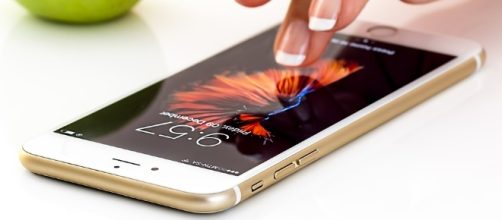Unlike an actual fridge, which contains a bright light and things to eat, Social media can leave us feeling empty and, ironically, isolated from the outside world. The frantic search for Wi-Fi or 3G, in today’s society, is regarded as a perfectly reasonable concern for when we will get our next ‘fix.’ Social media allows us to communicate but when can we finally say enough is enough, and honestly admit: We are Addicted to social media.
The new ‘normal’ is for everyone to have a phone in their hand.
Constantly checking our Facebook messages, twitter pages, and Instagram accounts has become socially acceptable.
Social media provides us with a platform to keep-up-to-date with the world. However, living in this technological era, many of us are obsessed with constantly checking our page to ensure we haven’t missed anything. I did a survey entitled ‘Social Media Addiction’ focusing on the 18-40 demographic; everyone that participated admitted to checking social media “daily”, if not, “hourly” and claimed to use it for: “socialising, keeping in contact with friends and just generally keeping up to date with the world.” However, in follow-up interviews with the participants Hannah, 27, said that she constantly checks hers because: “It’s the only way to feel connected in the world.” A world which only functions when we play our lives through the medium of an instant messaging app.
Our intimate details which we showcase online serve to prove to our followers how interesting we are. In a recent interview with people aged 16 to 24- on the subject of whether the life they portray online is accurate- Steven, 19, believes that social media, “can make people seem more interesting than they really are because they only choose to highlight certain parts of their life.” If we look at individual apps themselves, Instagram, for example, provides us with the tools at the touch of our fingertips to manually alter our images in order to make them more appealing to our followers.
Either to make the image more flattering or to gain more ‘likes’, we all choose to filter life.
Our intrinsic drive to share ourselves with others overpowers the notion of privacy in this social-media-driven world. We use our Facebook profiles, Twitter accounts or private blogs to self-promote; we purposefully go out our way to select only things which we value as interesting to go on these pages.
Social media essentially hands us the power to show others an insight into our lives, however, as we continue to portray a refined life, this becomes a very unrealistic insight.
Social Media has revolutionised the way we communicate
However, we have not created this egotistical attitude ourselves. The problem lies within the social media sites that encourage us to ‘filter’ not only our pictures but our lives. For example, Pinterest’s aim is to provide inspiration to everyday life. The site boasts quick and easy tutorials that many try to emulate. Yet, with this idea as a basis for a social media site, audiences can tend to feel that their life does not match up to the one presented online to them.
Everything online, once we erase the boring parts, edit the lighting and provide a funny caption to go alongside it, appears more interesting. We, as a society, subconsciously compare our own lives to those we follow online. Whether we admit it or not, social media plays not only a major part of our lives but also a major factor in how we shape and present them to others.
It is easy to see that the world is relying on a concept which realistically cannot be seen, heard or touched; a concept where we literally put our lives in its hands. Despite social media effectively serving its role of allowing people to freely communicate and keep in touch, it has a dangerous side too. Over 60% of those who participated in the survey admitted that they were addicted to social media as it was, “something they couldn’t live without.” The other 40% continue to live in denial.

